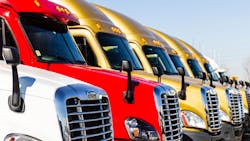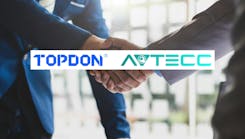Our industry is changing, driven by changes in technology. Sometimes technology changes for the good, and sometimes it can complicate things, making everything more impersonal. We are bound to live with these changes, and above all, adapt to them.
Connected to everything
We have entered into a new technological era where information is constantly available. The result is we always want to know what’s happening around us: We need the information right away to make a decision. What happens at any second will allow us to make a decision during that particular moment.
British philosopher Bertrand Russell said that doubting is of intelligent people. But in this era, it may not be lack of intelligence, but an overwhelming amount of information that generates doubt. We are consistently receiving information, and we have to make constant and accurate decisions for our businesses to continue to grow.
Electronics and sensorization have burst into our lives. We are all now connected with family, friends, colleagues and customers. Add to this, we are also connected with our vehicles, our house, and in general, everything going on in the world around us. The tendency is to be connected with everything in which we should participate, in order to modify the status or situation of something.
We install telematics systems in vehicles to know the location of the vehicle and surroundings, and we create alerts to avoid doing the wrong thing.
Sensors monitor our driving performance and maintenance intervals, like how many times we have stepped on the brake pedal or when an oil change is due on our vehicle. We are continuously monitored as we keep track of all our activity behind the wheel, including driving performance, and how many times we may have caused an incident due to reckless driving.
All of this information is then being stored on large servers. Through this information, "Big Data" means we no longer have to think the same as we have before: We will be told what to do, based on our daily behavior and interests.
Technological crossroads
We are at an important technological crossroads where changes are taking place at all levels. Interpretations of how we value different aspects of business and life, based on the analysis of data, may change. Some examples include:
- Salaries
How we value people will be defined based on productivity and habits. Specifically, transport companies already have the means to evaluate this through telematics and remote diagnostics. Salary may be established based on certain parameters determined by software, which determines average values in the market and the specifications to be filled.
- Vehicle service and maintenance
Today’s technology allows us to know conditions of a vehicle before we start our journey. We are able to decide what to do next based on the information reviewed during this inspection.
Not to mention, with predictive maintenance we can anticipate potential problems that could imminently happen prior to a breakdown.
- Route analysis
Today, with the use of GPS and other data available, we already know the status of roads, traffic congestion, etc. Now we even can go a step further; to anticipate changing road conditions for weather and other incidents.
- Driver improvement
The vehicle can inform us how we should drive, advising and providing us with feedback regarding our shortcomings and how to solve them.
- Environmental impact
An important consideration for the future, the environment will dictate the direction of technology, and new technologies will be developed to improve environmental problems. Preventing pollution of our planet must be a priority when controlling vehicles, industry, waste collection, etc. While there are many solutions in place today, work continues to be done to improve these solutions.
The cost of solutions that improve our business
And all this information and data collection comes at a cost: we acknowledge that “someone is controlling us.”
With the loss of privacy in exchange for this information, we continue to improve security, productivity, efficiency and environmental protections.
Venancio Alberca is the President and CEO of the Cojali Group, including the North American subsidiary, Cojali USA, Inc. Cojali, a European manufacturer of commercial vehicle components, develops solutions for heavy, medium and light duty trucks, bus and coach and off-highway equipment, including the manufacturing of cooling systems, air brake systems, telematics and the Jaltest all-makes diagnostics tool.


